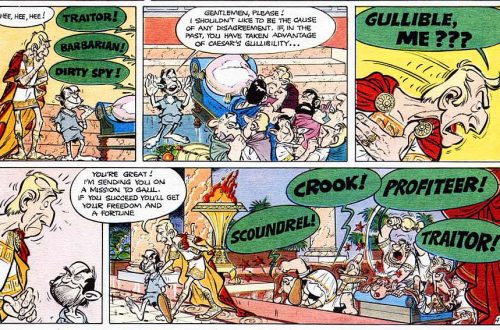Zoe Williams writes in the Guardian today about the need to “reclaim the C-word”. If I tell you that the piece begins by mentioning Eve Ensler, the author of The Vagina Monologues, then you’ll probably be able to guess which C-word I mean, but just to be clear, she writes:
when she discusses her achievements (I mean that in a totally neutral way), she starts here: “When I started this 10 years ago, no one said the word ‘vagina’. Let’s start there. Something has shifted in people”. There’s a problem here, isn’t there…It is fair to say that, wherever you are in the English speaking world, the controversial word is not vagina, but c#nt.
What I don’t agree with necessarily is the next paragraph, which begins: “People who hate women, or find us disgusting or terrifying, do not use “vagina” casually, as an insult”, implying that they use the C-word instead. The problem here is that if you were genuinely misogynistic, “vagina” would be a perfectly adequate term of abuse. The fact that it’s not used as an insult suggests to me that there’s something in the way it sounds that makes it unsuitable. There was a letter in Viz once that went something like “I see Andrew Lloyd Webber’s just bought a Canaletto from Sotherby’s for ten million quid. Well I’ve just bought a can of lager from Tesco for 39p. Who’s the c#nt?” It’s the woodenness of the sound and the single syllable that make “c#nt” work as a term of abuse, more so I think than its actual meaning.
Having said which, there was a comment on this thread prompted by Catherine Bennett’s article about the blokeishness of blogs that said “You will never find many women here as long as your favorite insult is a four letter word referring to female genitalia”. My own policy is if in doubt, don’t use the C-word. You might cause some offence. Happily though most of my female friends are enthusiastic reclaimers, and hurl it about with giddy abandon. Anyway Williams continues:
A correlative would be if the gay rights movement had started out reclaiming “queer”, and only claimed credit for reclaiming “homosexual”. Because it’s not explosively insulting, because it’s formal and a bit technical, because you can imagine it appearing on a legal document and not bawled across a bar in provocation, “homosexual” would have been a polite sort of coup
Obviously I can see the point here, but I don’t think the two words are entirely comparable; for a start, homophobes have all sort of alternatives to “queer” that they can use – I won’t list them. Secondly though, “queer” is much less offensive than “c#nt”. I remember Richard Briers once using it in an episode of The Good Life. He’d never, on the other hand, have dared call Margot Leadbetter a c#nt, no matter how rude she’d been about his peapod wine.
Williams finishes by saying that “The mistake feminists make, when they object to the c-word but never approach it, and never use it, is to think that it will slip discreetly out of the language. Of course it won’t! It’s the rudest word we’ve got, in the entire language”. Which is true, and which is why I’ve used a bit of self-censorship in this post. I don’t think the the same need apply in the comments boxes.
UPDATE:
Yusuf Smith in the comments mentions an article about the C-word by Kira Cochrane in the New Statesman, and his response to it. I hope it’s not because I’m a man, but I agree with Yusuf more than with Kira, who says that “when used as an insult, it implies that there is nothing more belittling or disgusting than to be compared to female genitalia”. I don’t think it does; she notes that, when John Lydon used it I’m a Celebrity . . . Get Me Out of Here!, “the show’s 11 million viewers might have been expected to take umbrage, but few did. ITV received fewer than a hundred complaints”. This suggests to me that of the (at least) 5.5 million viewers who’d be expected to object to its “breathtaking misogyny”, not many actually thought it was breathtakingly misogynistic.
Yusuf writes:
I was not exposed to much vulgar misogynistic talk until I went away to school, and it came as a huge shock. To this day I detest hearing it more, I suspect, than a lot of men; I’m just not sure that a vulgar word used mostly by people who forget its original meaning has all that much to do with it.


